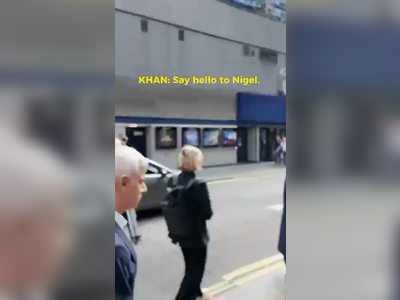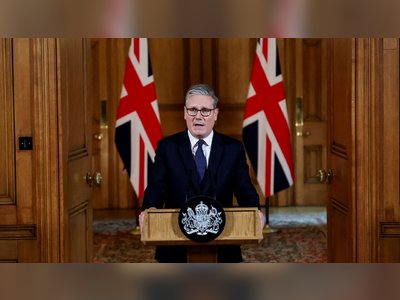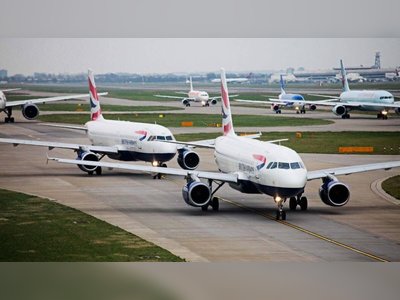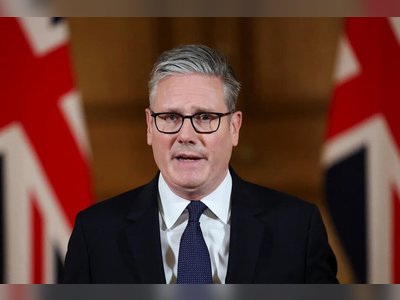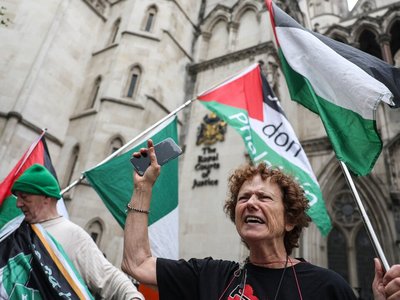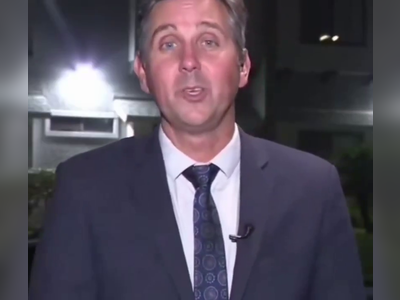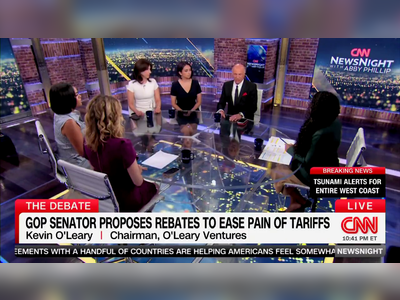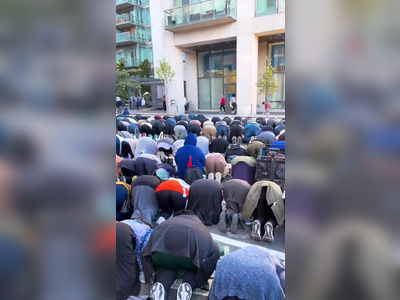Dominic Cummings Engages with Nigel Farage Amid Speculations of Political Return
Cummings hints at increased activity in Westminster following a secret dinner with Farage as both explore the future of UK politics.
Dominic Cummings, the former chief adviser to Boris Johnson and a key architect behind the Brexit campaign, has recently signaled a possible return to political discourse in Westminster.
Cummings, known for his impactful role in UK politics and controversially portrayed in media, indicated that he might increase his involvement in political matters, though he maintains he does not seek a formal position.
In a statement, Cummings expressed, "I might spend more time on SW1 depending how things play out, but I do not want a job there.
My efforts will only be helping people of any party pushing in what I consider a good direction."
The resurgence of Cummings in political conversations follows a discreet dinner with Nigel Farage, leader of the Reform UK party, held shortly before Christmas.
This meeting has spurred public interest, particularly as Cummings and Farage had previously been at odds during their involvement in Brexit campaigns, with conflicting organizations vying for a stronger endorsement in the referendum.
Farage, who has previously labeled Cummings as a “horrible nasty little man,” described their recent dinner as a dialogue aimed at addressing the difficulties associated with governmental functionality.
Cummings characterized the meeting as a “friendly chat,” focusing on systemic dysfunction within Whitehall and the need for a transformation in the ruling Conservative Party, as well as broader inclusivity of diverse talent in governance.
Cummings asserted, "The current crop of MPs and officials by definition can’t fix themselves.
It needs an outside force – just as the vaccine taskforce or rapid tests...
successful only because of forces external to Whitehall."
Sources suggest that Cummings has urged Farage to develop credible policies to effectively attract quality candidates and funding for Reform UK’s agenda.
Farage, acknowledging his aging demographic should he pursue leadership, expressed a desire to secure a parliamentary majority by the next general election slated for 2029.
Cummings has been described by acquaintances as revitalized and assertive in these recent political engagements after a period of relative seclusion post his departure from government in late 2020. After initially retreating from the public eye, he engaged in multiple high-profile discussions and inquiries, including his testimony at the ongoing Covid inquiry, where he criticized the leadership of Johnson.
Despite his skepticism towards current Conservative leadership, Cummings has maintained connections within party ranks and engaged with a cross-party group led by academic Dr. Lawrence Newport, with whom he collaborates on various societal issues.
Their partnership has aimed at tackling crime and economic growth, with Cummings contributing his extensive networks and advisory support.
The first Looking for Growth (LFG) event in December featured Cummings as a keynote speaker, where discussions focused on enhancing political engagement and efficiency.
Reflecting on his recent interactions, Cummings noted a lack of interest from Conservative MPs regarding the complexities of power dynamics within Whitehall, suggesting a shift towards broader political engagement.
Cummings' evolving role within the political landscape and his engagements may signal significant shifts in political alliances and strategies as he continues to explore avenues for influence in an ever-changing UK political environment.
Cummings, known for his impactful role in UK politics and controversially portrayed in media, indicated that he might increase his involvement in political matters, though he maintains he does not seek a formal position.
In a statement, Cummings expressed, "I might spend more time on SW1 depending how things play out, but I do not want a job there.
My efforts will only be helping people of any party pushing in what I consider a good direction."
The resurgence of Cummings in political conversations follows a discreet dinner with Nigel Farage, leader of the Reform UK party, held shortly before Christmas.
This meeting has spurred public interest, particularly as Cummings and Farage had previously been at odds during their involvement in Brexit campaigns, with conflicting organizations vying for a stronger endorsement in the referendum.
Farage, who has previously labeled Cummings as a “horrible nasty little man,” described their recent dinner as a dialogue aimed at addressing the difficulties associated with governmental functionality.
Cummings characterized the meeting as a “friendly chat,” focusing on systemic dysfunction within Whitehall and the need for a transformation in the ruling Conservative Party, as well as broader inclusivity of diverse talent in governance.
Cummings asserted, "The current crop of MPs and officials by definition can’t fix themselves.
It needs an outside force – just as the vaccine taskforce or rapid tests...
successful only because of forces external to Whitehall."
Sources suggest that Cummings has urged Farage to develop credible policies to effectively attract quality candidates and funding for Reform UK’s agenda.
Farage, acknowledging his aging demographic should he pursue leadership, expressed a desire to secure a parliamentary majority by the next general election slated for 2029.
Cummings has been described by acquaintances as revitalized and assertive in these recent political engagements after a period of relative seclusion post his departure from government in late 2020. After initially retreating from the public eye, he engaged in multiple high-profile discussions and inquiries, including his testimony at the ongoing Covid inquiry, where he criticized the leadership of Johnson.
Despite his skepticism towards current Conservative leadership, Cummings has maintained connections within party ranks and engaged with a cross-party group led by academic Dr. Lawrence Newport, with whom he collaborates on various societal issues.
Their partnership has aimed at tackling crime and economic growth, with Cummings contributing his extensive networks and advisory support.
The first Looking for Growth (LFG) event in December featured Cummings as a keynote speaker, where discussions focused on enhancing political engagement and efficiency.
Reflecting on his recent interactions, Cummings noted a lack of interest from Conservative MPs regarding the complexities of power dynamics within Whitehall, suggesting a shift towards broader political engagement.
Cummings' evolving role within the political landscape and his engagements may signal significant shifts in political alliances and strategies as he continues to explore avenues for influence in an ever-changing UK political environment.
